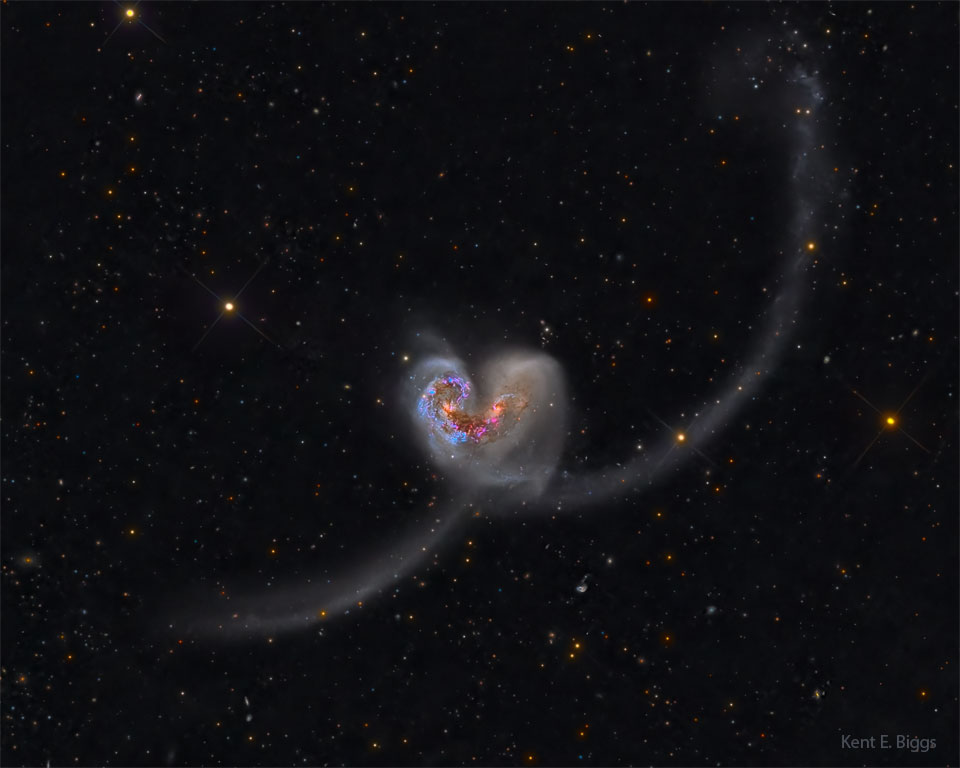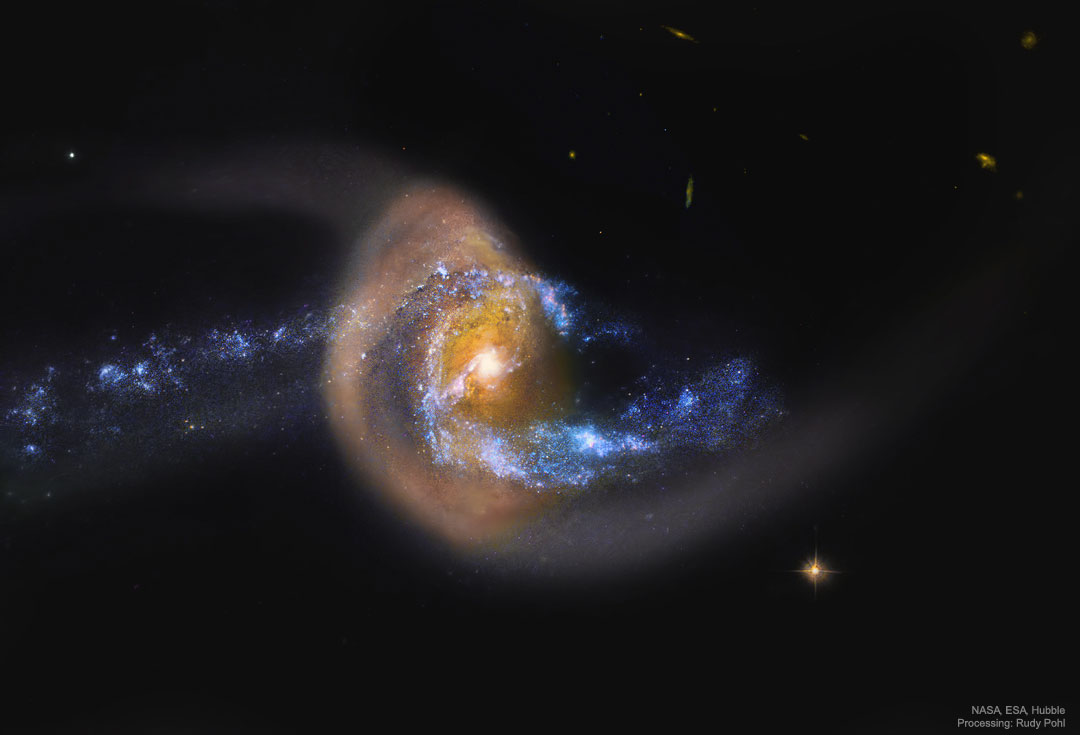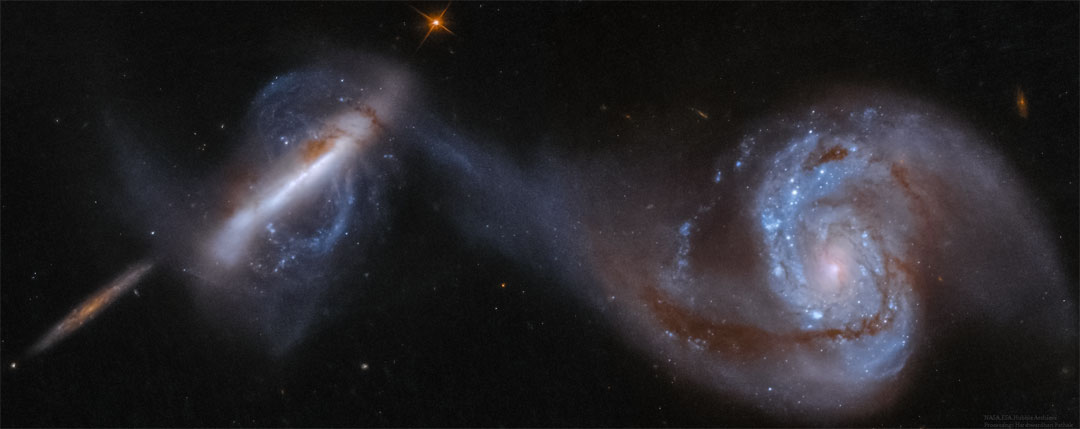2024年2月7日
The Heart Shaped Antennae Galaxies
Image Credit & Copyright: Kent E. Biggs
Explanation: Are these two galaxies really attracted to each other? Yes, gravitationally, and the result appears as an enormous iconic heart — at least for now. Pictured is the pair of galaxies cataloged as NGC 4038 and NGC 4039,known as the Antennae Galaxies. Because they are only 60 million light years away, close by intergalactic standards, the pair is one of the best studied interacting galaxies on the night sky. Their strong attraction began about a billion years ago when they passed unusually close to each other. As the two galaxies interact, their stars rarely collide, but new stars are formed when their interstellar gases crash together. Some new stars have already formed, for example, in the long antennae seen extending out from the sides of the dancing duo. By the time the galaxy merger is complete, likely over a billion years from now, billions of new stars may have formed.
Open Science: Browse 3,300+ codes in the Astrophysics Source Code Library
Tomorrow’s picture: open space
心形的触须星系
影像提供与版权: Kent E. Biggs
说明: 这二个星系真的在彼此吸引吗?是的,它们透过引力相互吸引,并造就了目前所见的庞大心脏标志外观。影像中这对合称为“触须星系”的互扰星系,其成员星系分别为NGC 4038和NGC 4039。它们离我们仅有6,000万光年远,以星系际的尺度来说,算是很邻近的星系,因此这对星系是夜空中研究得最透彻的互扰星系之一。它们之间的强烈交互作用大约启始于10亿年前,当时它们几乎是擦肩而过。虽然这两个星系发生互扰,不过它们的恒星却鲜少发生碰撞,但是当它们的星际气体相互推挤时,就会诞生新的恒星。在此范例里,有些新恒星已经形成,例如从这对”舞伴”二侧伸出的颀长触须上就有大量的新恒星。当这对星系大约在10亿年后完成合并时,或许已经形成了数十亿颗新恒星。 (Antennae Galaxies 触须星系)
开放科学: 浏览天体物理学源代码库中的3,300多个代码
明日的图片: open space




哇,这也太美了吧,真不错
I like it